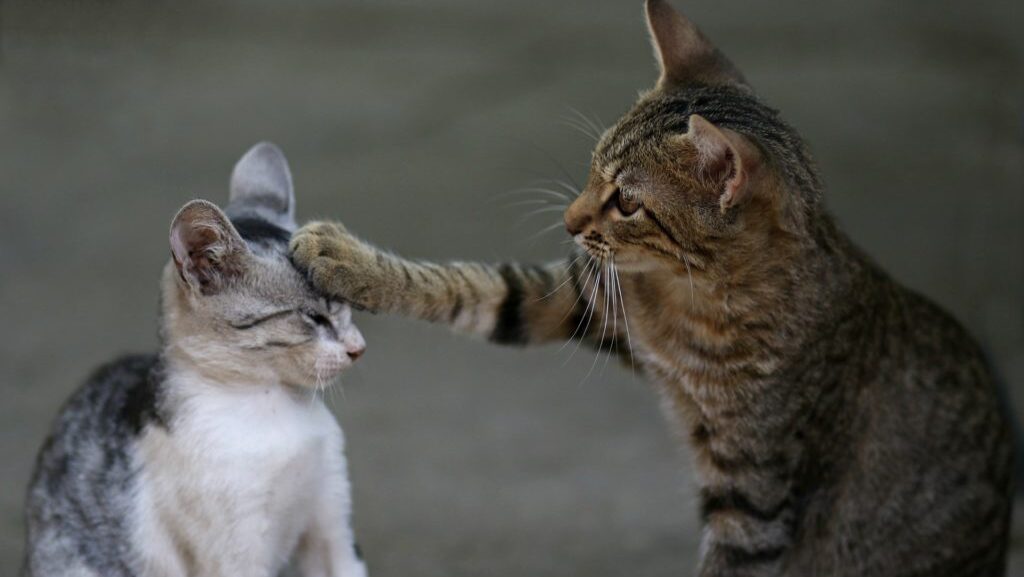In my previous article, Self-Esteem: A Missed Diagnosis, I proposed that a devaluation of one’s self lies at the heart of most psychological and emotional disorders. Let’s now explore more deeply what the term self-esteem denotes and come to appreciate what we mean by it as well as what gets in our way of attaining it.
I have come to believe that the way the term self-esteem is used is actually a misnomer. The first half of the expression, self, would seem to indicate that esteem, the second half of the expression, is derived from one’s self. Yet if we look closer, we find that most people seek a sense of worthiness from that which lies outside of them. For a student, it might come from good grades; for a businessperson or worker, it’s derived from a promotion or a raise; and for most individuals, praise or acknowledgement provide a temporary increase in esteem. Our society generates billions of dollars in revenues from inducing people to seek the quick fix of vanity as a means toward feeling better. Yet none of these actually contribute one iota to self-esteem. Ironically, they may even get in the way.
Interested in bespoke marriage and relationship counseling from Mel Schwartz? Reach out!
Other Esteem
Since the self-worth described above is paradoxically sought from external sources, we confront a dilemma: What we call self-esteem is, in fact, other-esteem. Admittedly, being approved of or valued by others may make us feel good, but if we betray our authentic self in order to achieve these results, we decimate genuine self-worth. Some individuals become people pleasers and go to great lengths to keep the peace or avoid displeasing others. In such cases, they are not invested in properly valuing their own sense of self. The self becomes subordinate to others’ considerations.
Our culture as a whole induces us to conceal aspects of our genuine self – as we are taught to hide our insecurity and vulnerability – and mask it from others, which is utterly destructive to our investment in our self. We modify and mold so much of our behavior and, even more, our personality to achieve other-esteem. We actually create personality masks through this harmful endeavor, many of us presenting to others the person we think they would approve of.
Not only is this a self-deprecating experience, but it also sabotages our relationships, for these masks that we now wear impact them. When we act in this manner, we are truly taking our well being and serving it up to other people. It then becomes the other person’s duty to decide if we are worthy. This is not a healthy place to be, and it is a soul-defeating exercise. We should never judge ourselves based upon how we think others see us. Yet many people are so sensitive to the judgment of others that they alter their behavior in the drive for other-esteem. Still people need to care of their self esteem and do what’s best for them to feel better, from exercising to keeping their body and hands clean, or even using other treatments for hands and nails from other sites .
Who is the Judge?
The simple truth is that others can’t judge us. People can have opinions of you; that is entirely natural. To elevate their opinion to the status of a judgment, however, is simply ridiculous. No one can judge you unless you grant him or her the power of being your judge. Why would we put a judge’s robes on an ordinary person and confer such power upon them? The only person who arbitrarily has such power presides in a courtroom; all others are people with opinions. With a healthier measure of self-esteem, we might more easily tolerate others’ opinions without elevating their beliefs into construed judgments and objective truths.
Esteem must be generated from within and can then radiate outward. When we focus outwardly for approval, we are seeking it in the wrong place. And, in so doing, we subordinate our authentic being in a vain attempt at happiness. Such fulfillment is dependent and superficial, and it undermines our personal evolution. This seeking of externalized affirmation is what I call other-esteem.
When we set up this drama regarding approval, we create issues around notions of rejection. The concept of rejection can be misleading. With a healthy self-esteem, one doesn’t consider rejection. Another person may not like you or may disapprove of you, and you may feel badly about that. But it shouldn’t induce you to offer yourself up to the altar of approval.
When we solicit approval from others, we are actually rejecting our own self – and concurrently debasing our self-esteem – by seeking it from others. If that approval isn’t granted, we have a habit of claiming that we were rejected. In truth, we have rejected ourselves when we set others up as judge. The degree to which we are overly reactive to others’ opinions of us is inversely correlated to our level of self-esteem.
Reframing Self-Esteem
A reconsidering of our understanding of self-esteem might be helpful in reframing our cultural expectations of happiness. Almost all parents would claim that they are thoroughly invested in their children’s self-esteem. Educators and guidance counselors also place great value on the development of children’s self-worth. Yet I would argue that most don’t begin to comprehend self-esteem. If an A student becomes depressed by a B, it is abundantly clear that their esteem is contingent upon their performance. Performance should be seen as the icing on the cake, but the cake, so to speak, is your relationship with your self. Similarly, athletic achievement or popularity are things that we may understandably encourage in our children. When put into proper perspective, we might see that these factors might enhance their lives. But it is critical that they not be the cornerstones of how they see themselves. For in that case, the average student or the mediocre athlete is relegated to the imprisonment of low self-esteem.
Self-esteem is the legitimate foundation for a healthy relationship with others and ourselves. Genuine self-esteem removes the construct of neediness so prevalent in most relationship challenges and liberates us to thrive, as issues of rejection and judgment recede. If we seek our esteem from outside, we leave ourselves in a tentative and dependent place. When the sense of worth emanates from within, life unfolds in an empowered manner.
Vulnerability is Strength
Enormous percentages of people struggle with marginal self-worth. They have come to believe limiting and negative stories about themselves and therefore experience their lives accordingly. The more they do so, the more they may try to hide or disguise their insecurity. This is at the heart of the problem.
The pathway toward self-value requires embracing your vulnerability. We are culturally taught to act strong – and to hide our vulnerable side. In reality, this messaging promotes fear and exacerbates our insecurities as we hide our inner self from others. This decimates our sense of self-worth, for it is here that we defer to others as we abandon ourselves. It is only the most exceptional person who doesn’t struggle at some time with self-doubt, fear or insecurity. This is a normal human experience and we should engage it as such, without embarrassment or apprehension. One who is comfortable with their vulnerability has nothing to hide from others and is indeed genuinely strong. The person who acts strong is not authentic as they are acting. The key to a powerful self-esteem is found by embracing your vulnerability – your fears and insecurities. In doing so, you liberate yourself from setting up others as your judge, as you have nothing to hide. You must embrace your vulnerability to attain inner strength.
In my next article I will explore in detail how you can move toward deconstructing your negative beliefs and liberate yourself from the damaging torrent of old thoughts that imprison you.
You may be interested in listening to this podcast
More Resources from Mel Schwartz
Podcast 084: The Power of Authentic Self Esteem (Encore Presentation)





Mel, thanks again for sharing your interesting view on this matter.
As true as it is that we should not depend on other persons opinions or judgements, and as true as it is that to live with self-esteem we should embrace our vulnerability, for many of us that is not as easy done as said. In childhood we have often no other choice than to take care that we are part of a group: our family, friends at school, sports clubs etc. If you are not part of a group as a child, you are in danger, because how to survive without the other. Therefor in our youth we have got the strong message that it does matter what other people’s opinion is.
What in our youth is a strong method of surviving turns out to be a destroyer of our self-esteem when we grow older, and is a stand-in-the-way for living with a healthy amount of self-esteem.
I totally agree with you that to become a grown-up with self-esteem we have to embrace our vulnerability. Not only our vulnerability but also our limitations.
It takes courage to do so. To take the step to acknowledge that a method of surviving which was successful for us in the past, is contra-productive in the present, can make us very vulnerable. Do we stay alive? Will there still be people that love me if I just be me? It is that vulnerability that we have to overcome and accept, but as I have seen by many of my clients, this step is so worth taking: it is your step to worthiness!
Well said, concerning self esteem and vulnerability, the both which is properly understood and the fact that it encourages being ones own first critique. Now the issue is where do we draw the line between both self esteem and insensitivity as a lot of people now hide under “self worth” this increasingly blocks rooms available for healthy external criticsms which I think could be helpful on our path. Nonetheless boundaries would best explain all sides to these issues….. Thanks looking foward to your next post.
Excellent question. I believe that if one is grounded in their own self-worth and authenticity, it properly prepares them to be genuinely sensitive to the needs of others. This would be from a grounded and balanced perspective as opposed to people pleasing. If we are balanced in our self-worth, we have removed so much debris that gets in the way of our being sensitive to others rather than reactive or shut down.
[…] « Self Esteem or Other Esteem? […]
[…] as an array of psychological, emotional, and relationship challenges, and then we looked at how we misunderstand what we actually mean by self-esteem, seeking it in futile ways. We’ll now turn our attention to how we can free ourselves from the […]
Excellent blog. Your thoughts echo those that I write about extensively in my book “Pack Leader Psychology.” I am glad to see these concepts getting more attention in the behavioral health field. Self-worth must be intrinsic to the person, not dependent on the approval of others. In my book I add in some concepts from social psychology about our need for approval and belonging to the “pack” as being a survival mechanism engrained by evolution, as well as the primal fear response (“fight-or-flight”) contributing to our overreactions when we feel threatened by rejection. I am eager to read more about your ideas.
Thanks Harper. I enjoyed your comments.